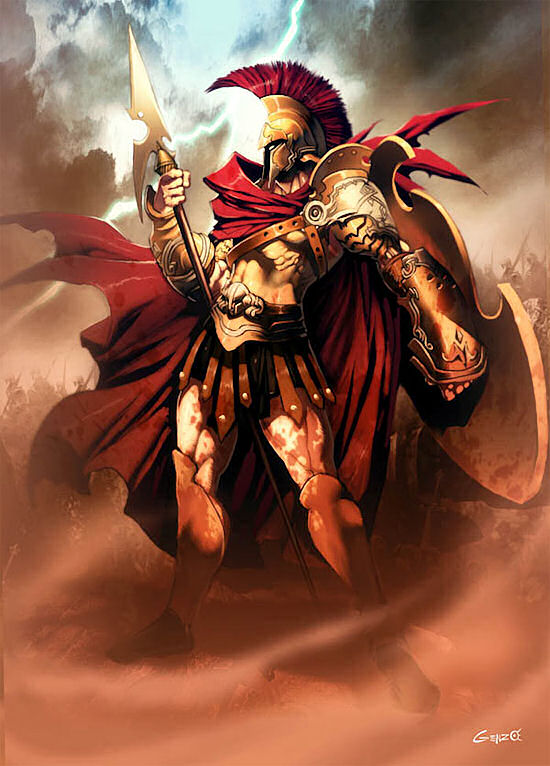In Greek mythology, Ares is the son of Zeus and Hera. Though often referred to as the Olympian god of warfare, he is more accurately the god of bloodlust, or slaughter personified: “Ares is apparently an ancient abstract noun meaning throng of battle, war.”
He is an important Olympian god in the epic tradition represented by the Iliad. The reading of his character remains ambiguous, in a late 6th-century funerary inscription from Attica: “Stay and mourn at the tomb of dead Kroisos/ Whom raging Ares destroyed one day, fighting in the foremost ranks”.
Among the Hellenes, Ares was always distrusted. Although Ares’ half-sister Athena was also considered a war deity, her stance was that of strategic warfare, whereas Ares’s tended to be one of unpredictable violence. Athena and Ares were enemies. His birthplace and true home was placed far off, among the barbarous and warlike Thracians, to whom he withdrew after his affair with Aphrodite was revealed.
“Ares” remained an adjective and epithet in Classical times, which could be applied to the war-like aspects of other gods: Zeus Areios, Athena Areia, even Aphrodite.
In Mycenaean times, inscriptions attest to Enyalios, a name that survived into Classical times as an epithet of Ares. Vultures and dogs, both of which prey upon carrion in the battlefield, are sacred to him.

